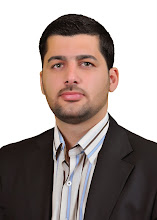
Turkish
soldiers in a military vehicle patrol on the Turkish-Syrian border near
the village of Hacipasa in Hatay province, southern Turkey 11 October
2012. (Photo: Reuters - Osman Orsal)
The Turkish government is daily repeating aggressive statements and
threats to the Syrian regime, such as demanding the Syrian president to
resign and even military threats – as happened lately after a Syrian
mortar killed three Turks near the border inside Turkey.However, Turkey is still not able to intervene in a direct and more
powerful way and this is not the first time Turkey faces such a
contradiction between its rhetoric and actions, as happened in 2010 when
Israeli forces killed 11 Turks during the “Gaza flotilla attack.”
This dilemma appears because the Justice and Development Party (AKP)
exists under the following factors: Ottoman’s historical glory,
rejection from the Europeans, the geo-strategic visions of Ahmet
Davutoğlu (Minister of Foreign Affairs), and, most importantly, the
AKP’s need for a religious–revolutionary rhetoric to mobilize the
Turkish people in order to control power away from military elites’
restrictions and national parties’ influence. This means that the AKP
ignored for a period the structural elements, especially the regional
balance of power, and that has made the party lose its credibility over
time.
Theoretically there are two main approaches, the
first emphasizes the priority of the structure and objective conditions
which determine the behavior of the agent, as the balance of power and
the nature of regional system. For example, Soli Özel (Istanbul Kadir
Has University) argues that “Undoubtedly, the actors do shape their
environment, but not at will. They are circumscribed by their
capacities, by other actors’ relative power, and the conditions created
by major shifts in that environment.” The second approach gives priority
to the agent who influences the structure and shapes it; the structure
is not more than the sum of the actions of the agents. For that, the
most important aspect of the agent’s behavior is its identity, internal
system, strategic culture, values and ambitions.
This structure-agent debate can contribute to understanding the
current crisis in Turkish foreign policy, as it faces many restrictions
and obstacles – as is evident in the tensions with Syria and Israel. In
the Israeli case, it was interesting to notice that as Turkey became
more aggressive towards Israel it becomes closer to the US and NATO,
which makes it rhetoric against Israel suspicious. This not to say that
Turkey is just a “Western proxy,” it differs in this aspect from some
Arab regimes, but rather that Turkey is a regional power with wide
national interests in Eurasia and clear ambition for regional leadership
and for that it seeks to cooperate, coordinate and integrate with
Western polices in the Middle East.
However, some Western powers demand Turkey, as a regional power, to
engage more and hold more responsibility in the Syrian crisis.
Anne-Marie Slaughter (former director of policy planning in the US State
Department) criticized Turkey when it called for an international
conference titled “Friends of Syria”, because of its weak and reactive
and rhetorical policy that is based merely on diplomacy and words
without actions. States that are eager to enjoy the trappings of
great-power status – with the assumption that they must be consulted on
major events or crises in their regions – must accept the burdens that
go with it. They must be prepared not just to talk, but to act, she
concluded.
After controlling the internal political game and
testing the balance of regional power, especially with the rise of the
Russian and Chinese regional roles and the growing tensions with Israel,
Greece, Cyprus, Iran, Kurds and Iraq, AKP’s government is now more
concerned with focusing on structural elements – mainly strategic
calculations for the power game in the Middle East. This development led
analysts such as Asli Aydintasbas (columnist for the Turkish daily Milliyet)
to argue that “Turkey’s Syria policy will remain rhetoric in the
absence of a clear international consensus regarding further action.”
Furthermore, Turkey within such a regional environment will seek for strategic partnership with new Arab regimes as Egypt, and with the NATO.This harmony between Turkey and NATO contradicts Israeli’s predictions at the beginning of their crisis with Ankara that Turkey is shifting away from the West. Efraim Inbar (Director of Begin-Sadat Center, BESA) warned in series of articles after the “Gaza flotilla attack,” that Turkish understandings with Islamic powers such as Iran, Syria and “resistance” movements, will change the balance of power within the Middle East, reduce the Western influence in the region, weaken NATO, and threaten oil routes to the West. This Israeli campaign was aiming to mobilize the West against the AKP and to isolate Ankara, because the Israelis were confused and concerned about the Turkish shift and US withdrawal from Iraq.
In conclusion, Turkey is using mainly its soft power and not its hard
power in order to extend its influence and leadership in the region,
and for that Turkey is using growing Islamic discourse which is
deviating gradually toward sectarianism. As for the Syrian crisis,
Turkey is and will continue to focus on diplomacy, statements and covert
actions. Though this will not lead to defeating the Syrian regime, it
will enhance Turkey’s legitimacy and attract more followers and
supporters in the region. The current Turkish role is a reflection of
the US decline in the region and the Western need to form a regional
Sunni coalition to balance against Iran. It seems that the Middle East
contains more than one “Israel.”
Hosam Matar is a Lebanese researcher of International Relations.



ليست هناك تعليقات:
إرسال تعليق